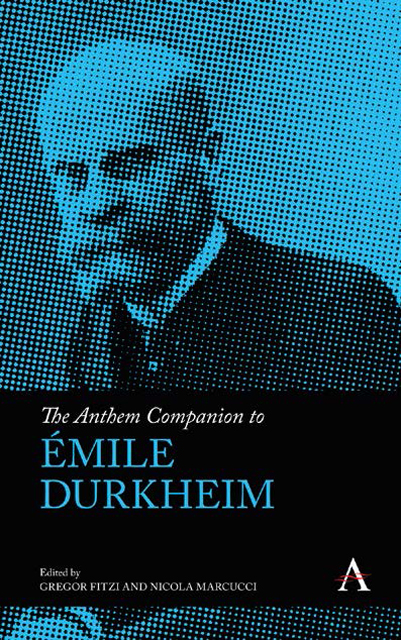Chapter 3 - Education, Social Link and Social Change: A Survey of Durkheim’s Pedagogical Works
Published online by Cambridge University Press: 09 December 2022
Summary
An Ambivalent Pedagogist
Durkheim's life as a pedagogist began at the same time as his academic career. After his studies at the Ecole Normale Supérieure and the agrégation, the very selective examination to gain access to teaching posts, his first job was inside the public educational system, as professor of philosophy in high school (lycée). When he was first called to the University of Bordeaux, in 1887, he was appointed as a lecturer in ‘Social Science and Pedagogy’. And when he returned to Paris, at the Sorbonne, in 1902, he took on the role as a substitute teacher of Ferdinand Buisson, a well-known professor of Science of Education, who had just been elected as a deputy. Durkheim gave a weekly course in pedagogy, followed above all by apprentice school teachers, until the end of his activity. Nevertheless, his relationship with this very relevant part of his professional life looks somehow ambivalent. This ambivalence can be observed at three different levels: his personal aptitude towards pedagogy, his works in this field and, finally, the reception and interpretation by scholars.
First, Durkheim, despite his official role, never considered himself a theorist or a researcher in pedagogy. On the contrary, he did not fail to highlight his distance from the discipline he was appointed to teach. When he was offered the post of Buisson, he wrote to Mauss that ‘leaving Bordeaux to teach pedagogy has no meaning for me (ne me dit rien)’ (Durkheim 1998, 326; Fabiani 2013, 130). The reason for this was not only that his academic ambitions were obviously directed towards sociology but also that for him pedagogy in itself was not a science, at least not yet. In a more indirect way, the need to distance himself from pedagogy was expressed by Durkheim in public, too. As it is well known, he was always very careful in presenting and delimiting the sociological domain and his own status as a scholar by distinguishing (and sometimes vehemently opposing) them to other disciplines and fields of research. Pedagogy makes no exception. But the difference is that it was part of his official role.
- Type
- Chapter
- Information
- The Anthem Companion to Émile Durkheim , pp. 53 - 78Publisher: Anthem PressPrint publication year: 2022

